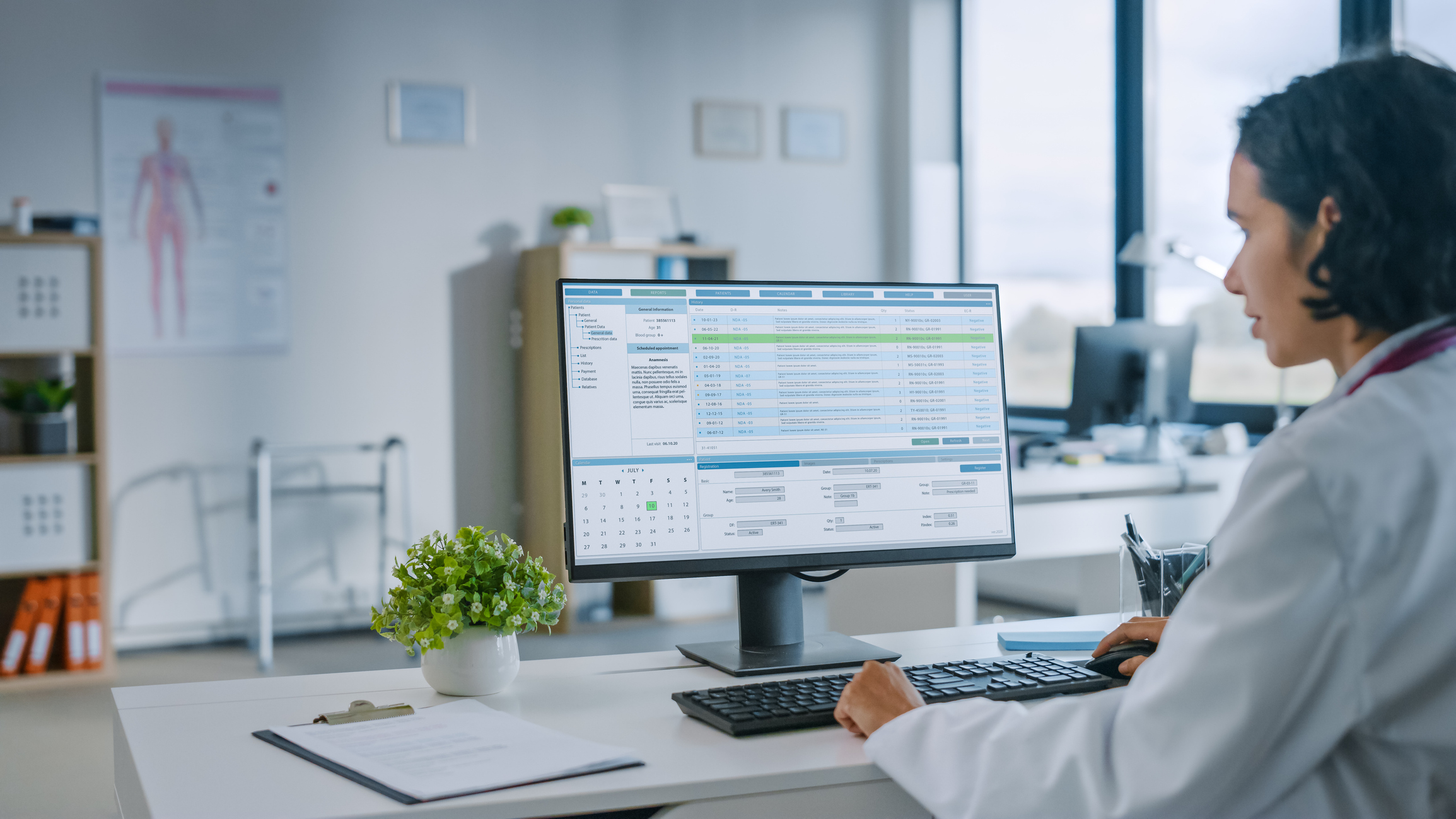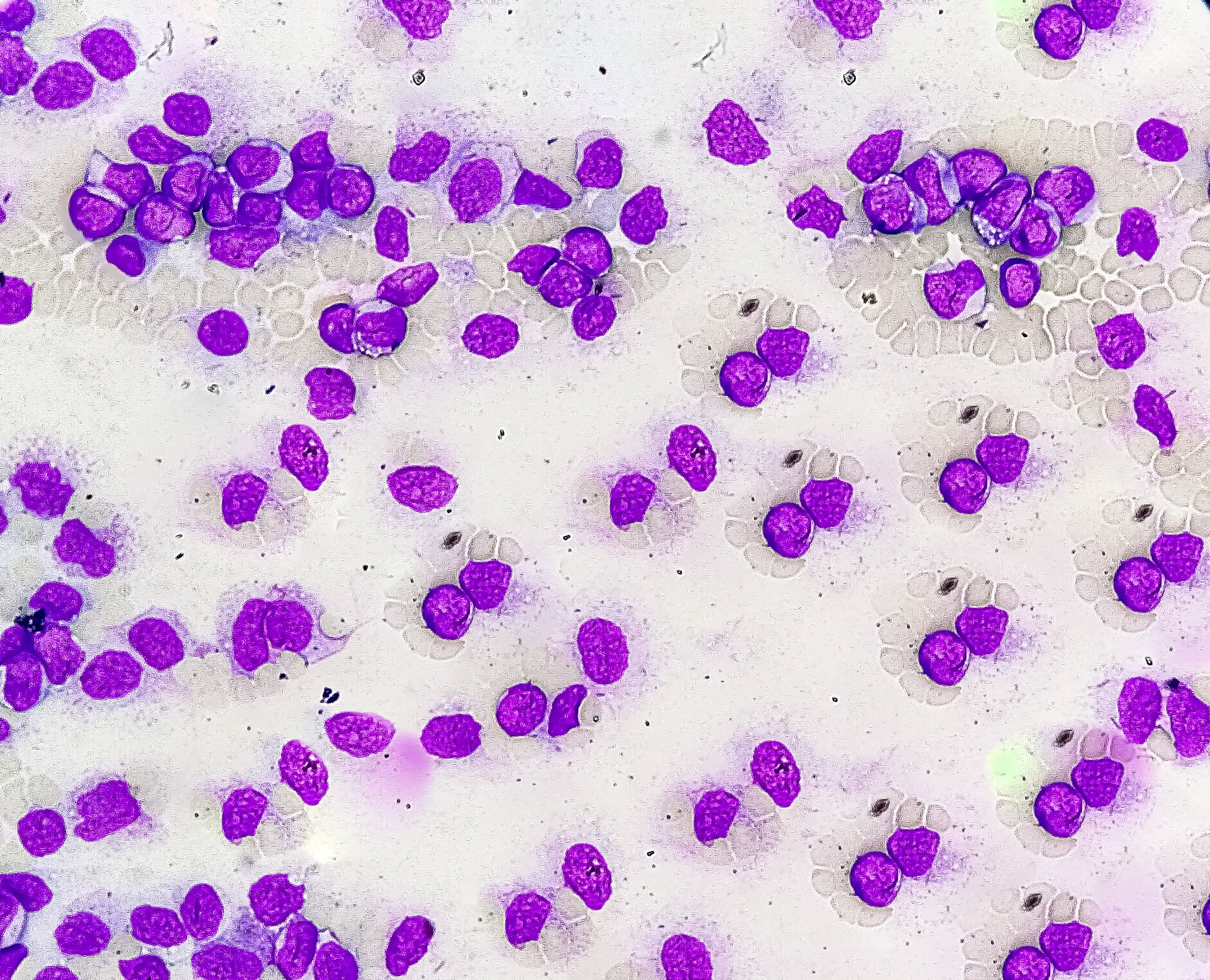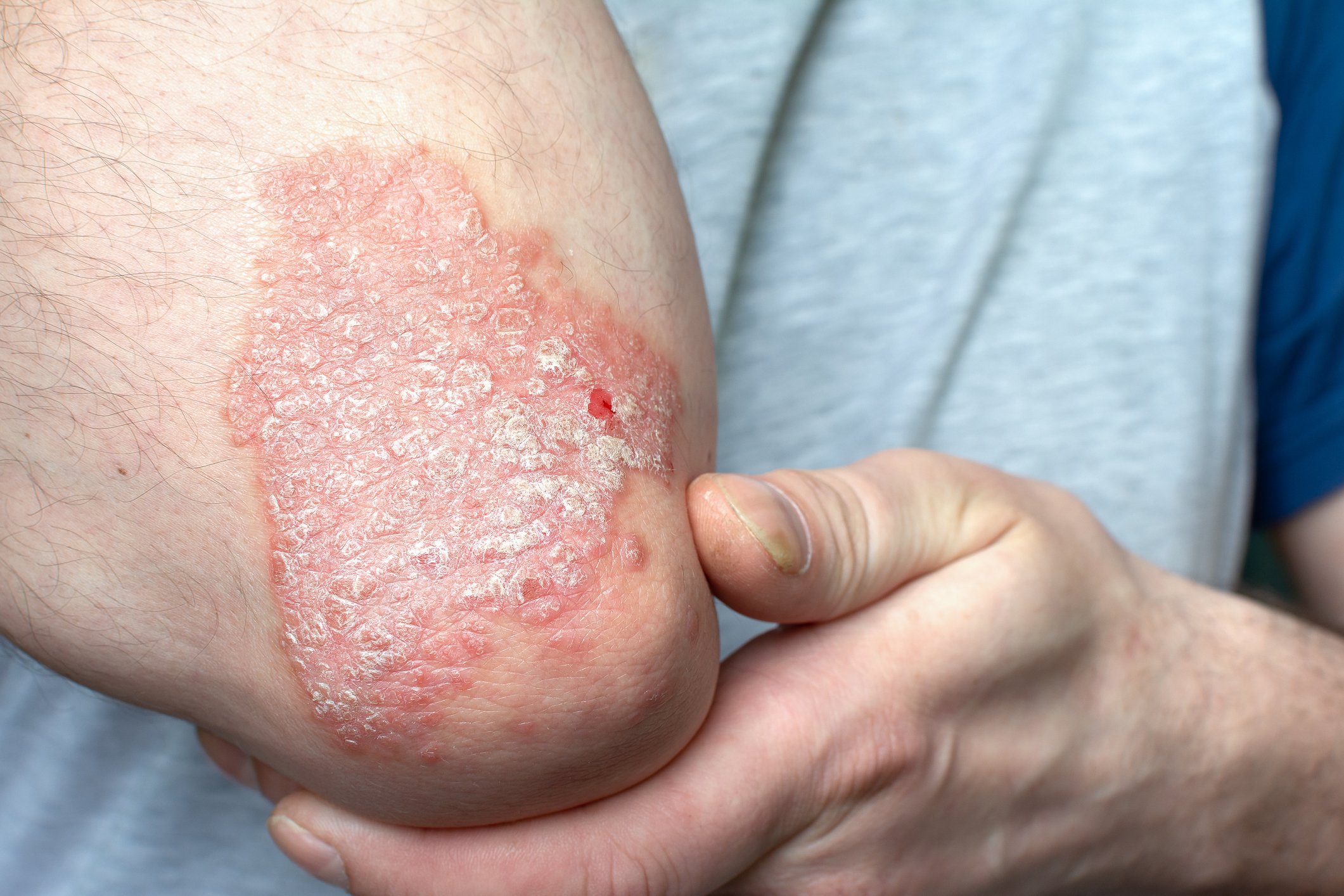In everyday practice, elevated TSH values are usually detected by chance during a routine examination. If the finding is confirmed by a repeat measurement, but the values for free T3 and T4 are within the normal range, the diagnosis is primary latent hypothyroidism. The DEGAM guideline published in 2023 provides useful information on the cases in which levothyroxine therapy is appropriate and on other questions.
Thyroid-stimulating hormone (TSH) is considered a central marker for thyroid dysfunction. An elevated TSH value indicates that the pituitary gland is increasingly active to compensate for latent hypothyroidism (free hormones in the normal range) or manifest hypothyroidism (free hormones decreased). Hypothyroidism can be congenital or acquired. In primary acquired hypothyroidism, the thyroid gland is causally responsible for decreased thyroxine production. An elevated TSH level is not always accompanied by symptoms. When in clinical practice there is an indication for TSH determination plus possibly also additional fT4-/fT3-determination is controversially discussed [1]. In most cases, elevated TSH values are noticed rather coincidentally in the context of laboratory tests in which the TSH was determined in parallel with other parameters. Especially in >85-year-old patients, there is no correlation between elevated TSH and symptoms [2]. The new S2k guideline “Elevated TSH levels in primary care” provides recommendations for primary care physicians for diagnostic and therapeutic procedures in ≥18-year-old patients with elevated TSH levels [2].
Age-dependent TSH thresholds
According to the DEGAM guideline, the following TSH values are to be classified as elevated in adult patients (Fig. 1) [2]:
- 18 to 70 years: >4.0 mU/l
- >70 to 80 years: >5.0 mU/l
- >80 years: >6.0 mU/l
In patients after hospital discharge (except thyroid surgery), TSH levels may be elevated due to the temporary metabolic change. If latent hypothyroidism is detected, a one-time determination of TPO antibodies can be performed to clarify the suspicion of Hashimoto’s thyroiditis. Repeat measurement of the TPO-AK can be omitted. Routine sonography in patients with elevated TSH levels is not recommended.
Factors influencing the measurement of the TSH value
TSH levels are influenced by multiple factors (e.g., circadian rhythmicity, diet, medications, iodine supply). Due to physiological time-of-day variations, blood sampling should be performed under the same conditions each time (time of day, food intake, medication intake) [6]. When interpreting the TSH values, it should also be noted that the TSH is positively correlated with the
age and weight is correlated [2]. The extent to which increased body weight or obesity is the cause or consequence of an elevated TSH value is difficult to determine initially in practice. However, against the background of increasing prevalence of obesity, the relationship between body weight/BMI and TSH levels should be considered. Certain medications can also lead to a distortion of TSH levels. Amiodarone (antiarrhythmic drug) and lithium (antidepressant/antipsychotic), for example, can induce organ-induced elevation of TSH levels through various mechanisms, including cytotoxic ones [7,8].
Criteria for substitution therapy
In the presence of manifest hypothyroidism, therapy or hormone replacement should always be performed, according to a statement in the guideline. In latent hypothyroidism, on the other hand, the situation is somewhat more complicated, and a case-by-case decision is advised here. As a guide for a criteria-driven decision, the guideline provides the following [2]:
- In patients ≤75 years of age, substitution therapy is recommended starting at TSH levels >10 mU/l, whereas at ≤10 mU/l there is no indication for substitution. Depending on the clinical symptoms and the patient’s wishes, discontinuation of therapy with control of TSH levels (until TSH <20 mU/l) may be an alternative option. The prerequisite for this is that patients are fully informed about the possible consequences of the various procedures.
- In >75-year-old patients with latent hypothyroidism (until TSH <20 mU/l), hormone replacement may not be necessary.
The initial dose should be determined individually depending on age, weight, cardiac status as well as the severity of hypothyroidism with a TSH target corridor between 0.4 and 4.0 mU/l. The following initial doses are recommended:
- Patients with manifest hypothyroidism <60 years of age without comorbidities: 1.6 µg/kg body weight.
- Patients with manifest hypothyroidism ≥60 years and/or with cardiovascular disease: 0.3-0.4 µg/kg body weight.
- Patients with latent hypothyroidism: 25-50 µg/day.
The dose is adjusted for each patient individually, based on the thyroid values determined by laboratory chemistry and the subjective well-being or any complaints.
When to refer to endocrinologist?
The DEGAM guideline recommends monotherapy with levothyroxine as the drug of choice in patients with hypothyroidism requiring treatment [2]. Therapy with T3, T3/T4 combinations or natural thyroid hormone preparations is not recommended. After initiation, as well as after any change in levothyroxine dose, thyroid hormones should be checked at the earliest after eight weeks. TSH follow-up can be performed after established doses, initially semiannually and later annually. The control interval can be changed depending on clinical symptoms and patient request. The necessary prerequisite for this is comprehensive patient education. In cases of long-term therapy with unclear indications, controlled discontinuation of replacement therapy should be considered, taking into account the patient’s best interests. If symptoms that were relevant to the treatment decision persist or worsen during therapy, it is important to examine alternative causes (e.g., clarification of other endocrine or autoimmune diseases, deficiencies, or substance abuse). The guideline advises referral to endocrinology specialists for patients who show the required adherence to substitution therapy but whose TSH level does not decrease or even continues to increase despite full levothyroxine doses,
Special case pregnancy
Pregnancy influences the metabolic state of the woman, since the pregnancy hormone β-hCG is structurally and functionally very similar to TSH. The β-hCG binds to the TSH receptor and mimics a weak effect. This physiologically lowers the TSH level slightly, especially in the 1st trimester. With falling β-hCG in the further course of pregnancy, this effect wears off and the TSH level rises slightly again.
The DEGAM guideline is against routine TSH screening in women of childbearing potential or pregnancy if there is no known thyroid disease [2]. The recommendations of the AGG (Arbeitsgemeinschaft Geburtshilfe, Sektion maternale Erkrankungen) on the management of thyroid dysfunction in pregnancy, also published in 2023, advise determining TSH levels in the presence of certain risk factors (overview 1) [3].
According to the DEGAM guideline, 4.0 mU/l should be considered the upper TSH reference value for pregnant women with and without known hypothyroidism, if no regional upper TSH reference values for pregnant women are available [2]. A determination of TPO-AK can be done once in women with elevated TSH in pregnancy (if never determined before). A recommendation for hormone therapy in latent hypothyroidism during pregnancy cannot currently be formulated based on the available data. From this factual situation, no recommendations can be derived for a therapy decision depending on the TPO-AK status in pregnant women with latent hypothyroidism. Pretreated pregnant women with hypothyroidism should continue to be supplemented. The aim is to achieve a consistently euthyroid setting with TSH values between 0.4 and 4.0 mU/l. Postpartum, patients with preexisting hypothyroidism should be reduced to the preconceptional L-thyroxine dose. In pregnant women with hypothyroidism receiving hormone replacement, TSH should be monitored regularly, at least once per trimester. The control interval can be individually adjusted depending on the course and level of the TSH value. In addition, TSH monitoring should be repeated six weeks postpartum to assess the need for continuation of therapy or possible dose reduction or discontinuation of therapy.
Literature:
- Pilz S, et al: Hypothyroidism: guidelines, new evidence, and clinical practice. J Clin Endocrinol Stoffw 2020; 13: 88-95.
- “Elevated TSH in family practice,” S2k guideline, long version, 2023, AWMF registry no. 053-046.
- Hamza A, et al: Recommendations of the AGG (Working Group for Obstetrics, Department of Maternal Diseases) on How to Treat Thyroid Function Disorders in Pregnancy. Obstetrics Gynecology 2023; 83(5): 504-516.
- Alexander EK, Pearce EN, Brent GA: 2017 Guidelines of the American Thyroid Association for the Diagnosis and Management of Thyroid Disease During Pregnancy and the Postpartum. Thyroid 2017; 27: 315-389.
- Fuhrer D: [Thyroid illness during pregnancy] Internist (Berl) 2011; 52: 1158-1166.
- Eastman CJ: Screening for thyroid disease and iodine deficiency. Pathology 2012, 44: 153-159.
- Barbesino G: Drugs affecting thyroid function. Thyroid 2010; 20: 763-770.
- Heufelder A, Wiersinga W: Disturbances of thyroid function by amiodarone. Deutsches Ärzteblatt 1999; 13: A853-A860.
HAUSARZT PRAXIS 2023; 18(10): 24-27













